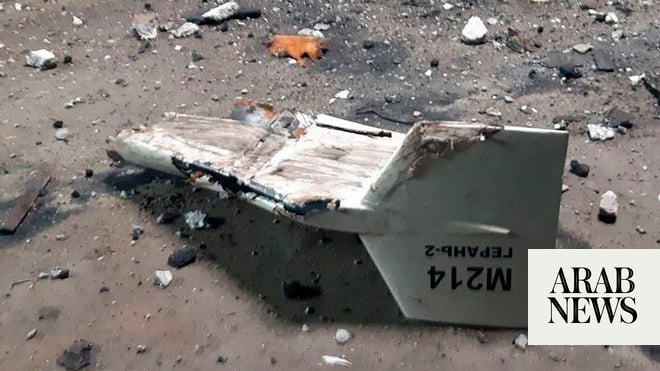
Hundreds of protesters were killed or wounded by Iranian regime forces in demonstrations that took place in cities across the country in November 2019. The Iranian people were protesting in response to the government raising the price of gasoline. These protests were much bloodier and more serious than the ones that erupted in 2009 in the aftermath of the rigged elections in favor of President Mahmoud Ahmadinejad and the scattered anti-regime protests of 2017.
According to Amnesty International, the number of protesters killed by regime forces in the November 2019 protests surpassed 300. Reuters, meanwhile, quoted three officials in the Iranian Ministry of Interior as saying that the death toll had reached 1,500.
Although six months have passed since the protests, the Iranian government has still not issued the real death toll. It has only acknowledged that a small number of people died. Iran’s leadership has consistently described the figures issued by Amnesty and other well-respected international human rights organizations as “lies” fabricated by the regime’s enemies and groups hostile to it.
The large number of protesters killed indicates that the highest levels within the Iranian leadership had given the green light to the security forces to crack down hard. The comments made amid the protests by Supreme Leader Ali Khamenei, in which he lambasted the protesters as “evildoers” creating a security crisis for Iran, were a thinly veiled message to the Ministry of Interior to crush the protests by any means.
The regime’s silence in the six months since the protests and its insistence that only a few people died — despite significant evidence to the contrary — suggests that the leadership in Tehran is desperate to hide the real figures.
The regime’s efforts to deny and cover up its crimes and continuously impede any investigation have reached ludicrous levels. For example, regime officials have insisted there are problems in investigating the killings of protesters since, they claim, it is difficult to identify whether those who died were innocent bystanders or active participants in the protests. According to regime officials, such identification is essential since it will help to identify whether those killed were innocent martyrs or anti-regime conspirators, with the families of martyrs eligible for compensation and other bonuses.
It seems that the Iranian regime hoped that the consecutive events Iran has witnessed since the protests, such as the assassination of Quds Force commander Qassem Soleimani, the downing of the Ukrainian jetliner and the coronavirus outbreak, would help it to deflect attention or hide the reality of its brutal crackdown.
Meanwhile, the US, which is monitoring the situation in Iran closely, has continued to highlight the regime’s crackdown on the protesters. In connection with this, Washington last week imposed new sanctions targeting the Iranian Interior Minister Abdolreza Rahmani Fazli, eight other officials and three regime security institutions. According to the sanctions, the US-based assets and properties of Fazli and the other officials have now been frozen and US financial institutions have been banned from conducting dealings with them. These sanctions come amid predictions of fresh protests over Iran’s deepening economic crises, which are the direct result of the regime’s failed policies.
Political disputes within the Iranian regime reveal that the US sanctioning of Fazli was correct. Only two days before the sanctions were announced, former Member of Parliament Ali Motahari accused Fazli of being the main culprit in the ruthless crackdown. He subsequently also accused Khamenei. Several other lawmakers also called for Fazli to face questioning in parliament, but Speaker Ali Larijani dismissed these calls.
The brutal crackdown on the protesters and the Iranian regime’s insistence on denying any responsibility have provided the US administration with another pretext to continue with its maximum pressure policy against Iran. This policy has included the imposition of harsh economic sanctions on Tehran. The White House accuses Iran of being the primary sponsor of terrorism in the region.
The crackdown also provided the US with an unmissable opportunity to pit the street against the regime and position itself as the defender of the Iranian people.
Meanwhile, Amnesty last week reiterated its call for UN Human Rights Council member states to immediately address the Iranian regime’s brutal crackdown on protesters. It wants an inquiry to investigate the protests and determine the truth, seek justice, compensate the families of victims, and ensure that no such killings happen in the future.
The regime’s silence suggests that the leadership in Tehran is desperate to hide the real figures.
Dr. Mohammed Al-Sulami
Rejecting the Iranian regime’s claims that only a few protesters were killed in the crackdown, Amnesty reiterated that it possesses conclusive evidence of the deaths of at least 304 people, including women and children, during the crackdown. It has stated that most of the victims were killed illegally by security forces and has strongly denied there is any evidence to suggest that the protesters carried firearms or posed any imminent threat.
The Iranian regime’s ruthless repression, deceitfulness and well-known skills in the devious falsification of information make it imperative that the international community strongly opposes the vicious brutality inflicted on the Iranian people in response to every protest demanding their legitimate rights.
We can only hope that Washington’s decision to blacklist the interior minister and the other Iranian officials for their role in killing innocent protesters — along with Amnesty’s demand for an investigation into the killings — provide an opportunity for bereaved Iranian families still mourning their loved ones to get justice. Their only “crime” was to protest the government’s unjust decision to raise the price of gasoline.
Dr. Mohammed Al-Sulami is Head of the International Institute for Iranian Studies (Rasanah). Twitter: @mohalsulami
Disclaimer: Views expressed by writers in this section are their own and do not necessarily reflect Arab News" point-of-view












